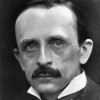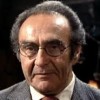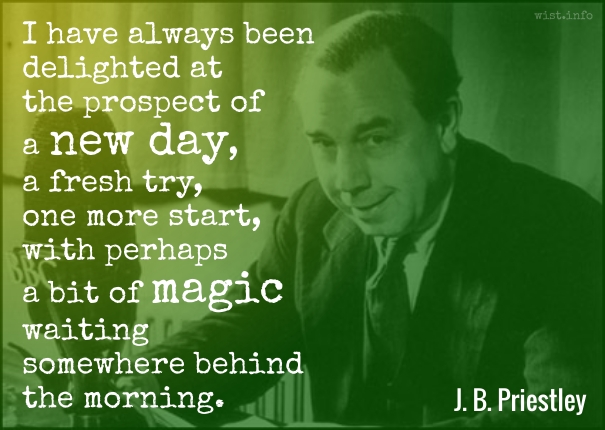The miser prays God for the vain and superfluous preservation of his hoard; the ambitious man, for success and the achievement of his desires; the thief uses God to help him overcome the dangers and difficulties which obstruct his nefarious designs or else thanks God when he finds it easy to slit the gizzard of some passer-by. At the foot of the mansion which they are about to climb into and blow up, men say their prayers, while their purposes and hopes are full of cruelty, lust, and greed.
[L’avaricieux le prie pour la conservation vaine & superflue de ses thresors : l’ambitieux pour ses victoires, & conduite de sa fortune : le voleur l’employe à son ayde, pour franchir le hazard & les difficultez, qui s’opposent à l’execution de ses meschantes entreprinses : ou le remercie de l’aisance qu’il a trouvé à desgosiller un passant. Au pied de la maison, qu’ils vont escheller ou petarder, ils font leurs prieres, l’intention & l’esperance pleine de cruauté, de luxure, & d’avarice.]
Michel de Montaigne (1533-1592) French essayist
Essays, Book 1, ch. 56 (1.56), “Of Prayers [Des prieres]” (1572-1580) [tr. Screech (1987)]
(Source)
Most of the passage appeared in the 1st (1580) edition; the last example (the military assault) appeared in the 3rd (1595) edition.
(Source (French)). Alternate translations:The covetous man sueth and praieth unto him for the vaine encrease and superfluous preservation of his wrong-gotten treasure. The ambitious, he importuneth God for the conduct of his fortune, and that he may have the victorie of all his desseignes. The theefe, the pirate, the murtherer, yea and the traitor, all call upon him, all implore his ayde, and all solicite him, to give them courage in their attempts, constancie in their resolutions, to remove all lets and difficulties, that in any sorte may withstand their wicked executions, and impious actions; or give him thanks, if they have had good successe; the one if he have met with a good bootie, the other if he returne home rich, the third if no man have seene him kill his enemie, and the last, though he have caused any execrable mischiefe. The Souldier, if he but go to besiege a cottage, to scale a Castle, to robbe a Church, to Pettard a gate, to force a religious house, or any villanous act, before he attempt-it, praieth to God for his assistance, though his intents and hopes be full-fraught with crueltie, murther, covetise, luxurie, sacriledge, and all iniquitie.
[tr. Florio (1603)]The covetous man prays for the vain and superfluous preservation of his riches; the ambitious, for victory and the conduct of his fortune; the thief calls God to his assistance to deliver him from the dangers and difficulties that obstruct his wicked designs; or returns him thanks for the facility he has met with in cutting a traveller's throat. At the door of the house they are going to storm, or break into by force of a petard, they fall to prayers for success, having their intention and hopes full of cruelty, avarice, and luxury.
[tr. Cotton (1686)]The covetous man prays for the conservation of his vain and superfluous riches; the ambitious for victory and the good conduct of his fortune; the thief calls Him to his assistance, to deliver him from the dangers and difficulties that obstruct his wicked designs, or returns Him thanks for the facility he has met with in cutting a man’s throat; at the door of the house men are going to storm or break into by force of a petard, they fall to prayers for success, their intentions and hopes of cruelty, avarice, and lust.
[tr. Cotton/Hazlitt (1877)]The avaricious man prays to him for the vain and superfluous of his riches; the ambitious man for his triumphs and the guidance of his passion; the thief employs him for aid in overcoming the risk and difficulties which impede the execution of his evil enterprises, or thanks him for the ease with which a traveler has had his throat cut. At the wall of the house they are about to scale or blow up, they say their prayers, their purpose and hope being full of cruelty, lust, greed.
[tr. Ives (1925)]The miser prays to him for the vain and superfluous conservation of his treasures; the ambitious man, for his victories and the guidance of this passion; the thief uses his help to pass through the risks and difficulties that oppose the execution of his wicked enterprises, or thanks him for having found it easy to cut a passer-by's throat. Standing beside the house they are going to scale or blow up, they say their prayers, with their intention and hopes full of cruelty, lust, and avarice.
[tr. Frame (1943)]
Quotations about:
magic
Note not all quotations have been tagged, so Search may find additional quotes on this topic.
I was wondering recently how the error arose which leads us to have recourse to God in all our doings and designs, calling upon him in every kind of need and in any place whatsoever where our weakness needs support, without once considering whether the occasion is just or unjust. No matter how we are or what we are doing — however sinful it may be — we invoke God’s name and power.
[J’avoy presentement en la pensée, d’où nous venoit cett’ erreur, de recourir à Dieu en tous nos desseins & entreprises, & l’appeller à toute sorte de besoing, & en quelque lieu que nostre foiblesse veut de l’aide, sans considerer si l’occasion est juste ou injuste ; & d’escrier son nom, & sa puissance, en quelque estat, & action que nous soyons, pour vitieuse qu’elle soit.]
Michel de Montaigne (1533-1592) French essayist
Essays, Book 1, ch. 56 (1.56), “Of Prayers [Des prieres]” (1572-1580) [tr. Screech (1987)]
(Source)
The first part of this (up to "in all our doings and designs") was in the 1st (1580) edition; the rest of this extract was added for the 2nd (1588) edition.
(Source (French)). Alternate translations:I was even now considering, whence this generall errour commeth, that in all our desseignes and enterprises, of what nature soever, we immediately have recourse unto God, and in every necessitie, we call upon his holy name: And at what time soever wee stand in neede of any help, and that our weaknesse wanteth assistance, we onely invoke him, without considering whether the occasion be just or unjust; and what estate or action we be in, or go about, be it never so vicious or unlawfull, we call upon his name and power.
[tr. Florio (1603)]It just now comes into my mind, from whence we should derive the error of having recourse to God in all our designs and enterprises, of applying to him in all our wants, and in all places where our weakness stands in need of support, without considering whether the occasion be just or otherwise, and of invoking his name and power, in what estate soever we are, or what action we are engaged in, how vicious soever.
[tr. Cotton (1686)]It just now came into my mind, whence it is we should derive that error of having recourse to God in all our designs and enterprises, to call Him to our assistance in all sorts of affairs, and in all places where our weakness stands in need of support, without considering whether the occasion be just or otherwise; and to invoke His name and power, in what state soever we are, or action we are engaged in, howsoever vicious.
[tr. Cotton/Hazlitt (1877)]I was reflecting just now on whence comes this error of ours of having recourse to God in all our schemes and undertakings, and of calling upon him in every sort of necessity and in whatsoever place our weakness desires aid, without considering whether the occasion be responsible or unreasonable; and of invoking his name and his power, whatever condition and action we may be in, vicious though it may be.
[tr. Ives (1925)]I was just now thinking about where that error of ours comes from, of having recourse to God in all our designs and enterprises, and calling on him in every kind of need and in whatever spot our weakness wants help, without considering whether the occasion is just or unjust, and invoking his name and his power, in whatever condition or action we are involved, however vicious it may be.
[tr. Frame (1943)]
Philosophy is odious and obscure;
Both law and physic are for petty wits;
Divinity is basest of the three,
Unpleasant, harsh, contemptible, and vile:
‘Tis magic, magic, that hath ravish’d me.Christopher "Kit" Marlowe (1564-1593) English dramatist and poet
The Tragicall History of the Life and Death of Doctor Faustus, Act 1, sc. 1 (sc. 1), l. 138ff (1594; 1604 “A” text)
(Source)
Declaring to the magicians Valdes and Cornelius his decision to pursue magical studies.
Goethe's Faust (1808-1829) includes a similar litany of studies the title character feels are useless.
In the generally longer 1616 "B" text (l. 131ff), the lines about Divinity studies are omitted:Philosophy is odious and obscure:
Both Law and Physicke are for petty wits,
Tis Magicke, Magicke that hath ravisht me.
There are two equal and opposite errors into which our race can fall about the devils. One is to disbelieve in their existence. The other is to believe, and to feel an excessive and unhealthy interest in them. They themselves are equally pleased by both errors and hail a materialist or a magician with the same delight.
C. S. Lewis (1898-1963) English writer, literary scholar, lay theologian [Clive Staples Lewis]
The Screwtape Letters, Preface (1942 ed.)
(Source)
With rapturous face he produces his pipes, and the Never birds and the fairies gather closer till the roof of the little house is so thick with his admirers that some of them fall down the chimney. He plays on and on till we wake up.
J. M. Barrie (1860-1937) Scottish novelist and dramatist [James Matthew Barrie]
Peter Pan, Act 5, closing lines (1904, pub. 1928)
(Source)
JANE: Some people think that external beauty comes from inner tranquility. Of course, some people think it comes from drinking the blood of virgins, so there’s quite a range there.
Steven Moffat (b. 1961) Scottish television writer, producer
Coupling, 03×01 “Split” (2002-09-23)
(Source)
MACBETH: I bear a charmèd life, which must not yield
To one of woman born.MACDUFF: Despair thy charm,
And let the angel whom thou still hast served
Tell thee Macduff was from his mother’s womb
Untimely ripped.MACBETH: Accursèd be that tongue that tells me so,
For it hath cowed my better part of man!William Shakespeare (1564-1616) English dramatist and poet
Macbeth, Act 5, sc. 8, l. 15ff (5.8.15-22) (1606)
(Source)
PETER: You just think lovely wonderful thoughts and they lift you up in the air.
J. M. Barrie (1860-1937) Scottish novelist and dramatist [James Matthew Barrie]
Peter Pan, Act 1 (1904, pub. 1928)
(Source)
In Barrie's novelization, Peter and Wendy, ch. 3 "Come Away, Come Away!" (1911), Peter uses the same words.
ALL WITCHES: Fair is foul, and foul is fair;
Hover through the fog and filthy air.William Shakespeare (1564-1616) English dramatist and poet
Macbeth, Act 1, sc. 1, l. 12ff (1.1.12-13) (1606)
(Source)
There is in the word, in the logos, something sacred which forbids us to gamble with it. To handle a language skillfully is to practice a kind of evocative sorcery.
[Il y a dans le mot, dans le verbe, quelque chose de sacré qui nous défend d’en faire un jeu de hasard. Manier savamment une langue, c’est pratiquer une espèce de sorcellerie évocatoire.]
Charles Baudelaire (1821-1867) French poet, essayist, art critic
L’Art Romantique, ch. 28 “Théophile Gautier,” sec. 3 (1868) [tr. Gilman (1958)]
(Source)
Originally published in L'Artiste (1859-03-13). It appears in Vol. 3, ch. 8 of the 1885 Œuvres complètes de Charles Baudelaire.
(Source (French)). Alternate translations:There exists in the word, in the verb, something sacred which prohibits us from viewing it as a mere game of chance. To manipulate language with wisdom is to practice a kind of evocative sorcery.
[tr. Jakobson (1981)]There is in a word, in a verb, something sacred which forbids us from using it recklessly. To handle a language cunningly is to practice a kind of evocative sorcery.
[E.g.]
The voodoo priest and all his powers were as nothing compared to espresso, cappuccino, and mocha, which are stronger than all the religions of the world combined, and perhaps stronger than the human soul itself.
Mark Helprin (b. 1947) American novelist, journalist, commentator
Memoir from Antproof Case, “The First Man I Killed” (1995)
(Source)
Salamander, gleam candescent!
Thou, Undine, shalt wreathe and coil!
Sylph, disperse thee evanescent!
Goblin, thou shalt toil and moil![Salamander, soll glühen,
Undene sich winden,
Sylphe verschwinden,
Kobold sich mühen.]Johann Wolfgang von Goethe (1749-1832) German poet, statesman, scientist
Faust: a Tragedy [eine Tragödie], Part 1, sc. 6 “The Study,” l. 1304ff [Faust] (1808-1829) [tr. Latham (1908)]
(Source)
Some translations (and this site) include the Declaration, Prelude on the Stage, and Prologue in Heaven as individual scenes; others do not, leading to their Part 1 scenes being numbered three lower.
"The Spell of Four Elements" or "Fourfold Spell" [Spruch der Viere]. (Source (German)). Alternate translations:Salamander must be glowing,
Undine self-coiling,
Sylph vanish in going,
Kobold keep toiling.
[tr. Priest (1808)]Salamander shall glow,
Undine twine,
Sylph vanish,
Kobold be moving.
[tr. Hayward (1831)]Salamander shall kindle,
Writhe nymph of the wave,
In air sylph shall dwindle,
And Kobold shall slave.
[tr. Swanwick (1850)]Salamander shall glisten,
Undina lapse lightly,
Sylph vanish brightly,
Kobold quick listen.
[tr. Brooks (1868)]Salamander, shine glorious!
Wave, Undine, as bidden!
Sylph, be thou hidden!
Gnome, be laborious!
[tr. Taylor (1870)]Let the Salamander glow,
Undene twine her crested wave,
Silphe into ether flow,
And Kobold vex him, drudging slave!
[tr. Blackie (1880)]Salamander shall broil,
Undene shall grieve,
Sylphe shall leave,
Kobold shall toil.
[tr. Kaufmann (1961)]Glow, Salamander
Undine, coil
Sylph, meander
Kobold, toil.
[tr. Salm (1962)]Let Salamander flare,
Undine coil,
Sylph thin to air,
Hobgoblin toil.
[tr. Arndt (1976)]Salamander, burn!
Water-nymph, twist and turn!
Sylph of the air, dissolve!
Goblin, dig and delve
[tr. Luke (1987)]Salamander, glow hot,
Undine, wind about,
Sylph vanish quick,
Kobold, to work
[tr. Greenberg (1992)]Salamanders aglow,
Undines so fair,
Sylphs of the air,
Kobolds below!
[tr. Williams (1999), l. 1273ff]Salamander, be glowing,
Undine, flow near,
Sylph, disappear,
Gnome, be delving.
[tr. Kline (2003)]
All religions are ultimately cargo cults. Adherents perform required rituals, follow specific rules, and expect to be supernaturally gifted with desired rewards — long life, honor, wisdom, children, good health, wealth, victory over opponents, immortality after death, any desired rewards.
To go from being a competent writer to being a great writer, I think you have to risk being — or risk being seen as — a bad writer. Competence is deadly because it prevents the writer risking the humiliation that they will need to risk before they pass beyond competence. To write competently is to do a few magic tricks for friends and family; to write well is to run away to join the circus. Your friends and family will love your tricks, because they love you. But try busking those tricks on the street. Try busking them alongside a magician who has been doing it for 10 years, earning their living. When they are watching a magician, people don’t want to say, “Well done.” They want to say, “Wow.”
Toby Litt (b. 1968) English writer and academic
“What makes bad writing bad?” The Guardian (20 May 2016)
(Source)
“This I choose to do,” she croaked, her breath leaving little clouds in the air. She cleared her throat and started again. “This I choose to do. If there is a price, this I choose to pay. If it is my death, then I choose to die. Where this takes me, there I choose to go. I choose. This I choose to do.”
It wasn’t a spell, except in her own head, but if you couldn’t make spells work in your own head, you couldn’t make them work at all.Terry Pratchett (1948-2015) English author
Discworld No. 35, Wintersmith, ch. 1 [Tiffany] (2006)
(Source)
Any sufficiently advanced magic is indistinguishable from technology.
Charles "Charlie" Stross (b. 1964) British writer
The Nightmare Stacks, ch. 18 (2016)
(Source)
A variant of Clarke's Third Law.
As the man put it: Any sufficiently advanced technology is indistinguishable from magic. Any sufficiently advanced alien intelligence is indistinguishable from God — the angry monotheistic sadist subtype. And the elder ones … aren’t friendly. (See? I told you I’d rather be an atheist!)
Man masters nature not by force but by understanding. This is why science has succeeded where magic failed: because it has looked for no spell to cast over nature.
“So the moon effects magic, why?”
“I’m working on several theories,” I said. “But I’m currently favoring the hypothesis that the moon has a seemingly arbitrary effect on magic because it likes to piss me off.”
“That’s a theory with a high degree of applicability to other spheres of life,” he said.
“Yes, it is,” I said, and we spontaneously fist bumped.
More to the point, nameless hideous monsters are freaking terrifying. You always fear what you don’t know, what you don’t understand, and the first step to having understanding of something is to know what to call it. It’s a habit of mine to give names to anything I wind up interacting with if it doesn’t have one readily available. Names have power — magically, sure, but far more important, they have psychological power. Something horrible with a name holds less power over you, less terror, than something horrible without one.
“Octokongs,” I pronounced grimly. “Why did it have to be octokongs?”
“You put a spell on the dog,” I said as we left the house.
“Just a small one,” said Nightingale.
“So magic is real,” I said. “Which makes you a … what?”
“A wizard.”
“Like Harry Potter?”
Nightingale sighed. “No,” he said. “Not like Harry Potter.”
“In what way?”
“I’m not a fictional character,” said Nightingale.
Scientists have calculated that the chances of something so patently absurd actually existing are millions to one.
But magicians have calculated that million-to-one chances crop up nine times out of ten.
You never see animals going through the absurd and often horrible fooleries of magic and religion. … Dogs do not ritually urinate in the hope of persuading heaven to do the same and send down rain. Asses do not bray a liturgy to cloudless skies. Nor do cats attempt, by abstinence from cat’s meat, to wheedle the feline spirits into benevolence. Only man behaves with such gratuitous folly. It is the price he has to pay for being intelligent but not, as yet, quite intelligent enough.
I saw pale kings and princes too,
Pale warriors, death-pale were they all;
They cried — “La Belle Dame sans Merci
Hath thee in thrall!”
I should mention that there had been many floating castles before the Interregnum. I guess the spell isn’t all that difficult, if you care to put enough work into it in the first place. The reason that they are currently out of vogue is the Interregnum itself. One day, over four hundred years ago now, sorcery stopped working … just like that. If you look around in the right places in the countryside you will still find broken husks and shattered remnants of what were once floating castles.
Three Rings for the Elven-kings under the sky,
Seven for the Dwarf-lords in their halls of stone,
Nine for Mortal Men doomed to die,
One for the Dark Lord on his dark throne
In the Land of Mordor where the Shadows lie.
One Ring to rule them all, One Ring to find them,
One Ring to bring them all and in the darkness bind them
In the Land of Mordor where the Shadows lie.J.R.R. Tolkien (1892-1973) English writer, fabulist, philologist, academic [John Ronald Reuel Tolkien]
The Lord of the Rings, Vol. 1: The Fellowship of the Ring, Book 1, ch. 2 “The Shadow of the Past” (1954)
(Source)
Gandalf recites this verse "long known in Elven-lore," after finding lines 6-7 engraved in Quenya (but representing the Black Speech) on the ring Frodo has.
“Why can’t you fly now, mother?”
“Because I am grown up, dearest. When people grow up they forget the way.”
“Why do they forget the way?”
“Because they are no longer gay and innocent and heartless. It is only the gay and innocent and heartless who can fly.”J. M. Barrie (1860-1937) Scottish novelist and dramatist [James Matthew Barrie]
Peter and Wendy, ch. 17 “When Wendy Grew Up” [Jane to Wendy] (1911)
In his 1908 sequel play, When Wendy Grew Up, An Afterthought (some which was eventually folded into the main play (1904, published 1928) in Act 5, though not these lines), this is rendered:JANE: Why can't you fly now, Mother?
WENDY: Because I'm grown up, sweetheart; when people grow up they forget the way.
JANE: Why do they forget the way?
WENDY: Because they are no longer young and innocent. It is only the young and innocent that can fly.
GLENDOWER: I can call spirits from the vasty deep.
HOTSPUR: Why, so can I, or so can any man;
But will they come when you do call for them?William Shakespeare (1564-1616) English dramatist and poet
Henry IV, Part 1, Act 3, sc. 1, l. 55ff (3.1.55-57) (1597)
(Source)
A Thaum is the basic unit of magical strength. It has been universally established as the amount of magic needed to create one small white pigeon or three normal sized billiard balls.
LEELA: I know, I know, there’s no such thing as magic.
THE DOCTOR: Exactly! To the rational mind, nothing is inexplicable, only unexplained.
Chris Boucher (1943-2022) British TV screenwriter, script editor, novelist
Doctor Who (1963), 14×05 “The Robots of Death,” Part 1 (1977-01-29)
(Source)
People who used magic without knowing what they were doing usually came to a sticky end.
All over the entire room, sometimes.



























